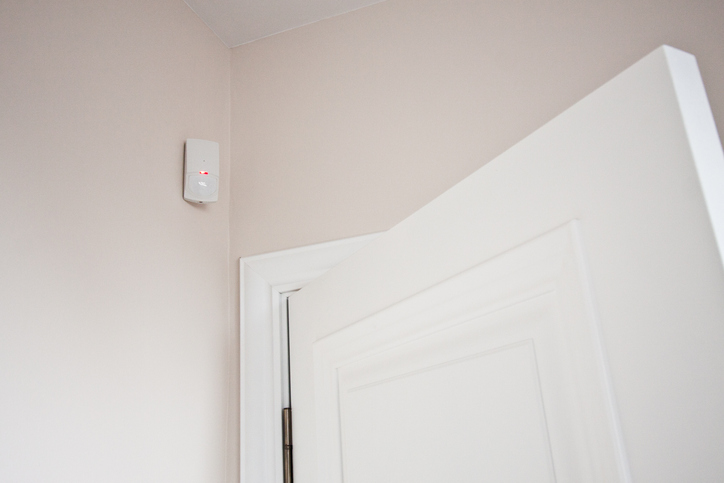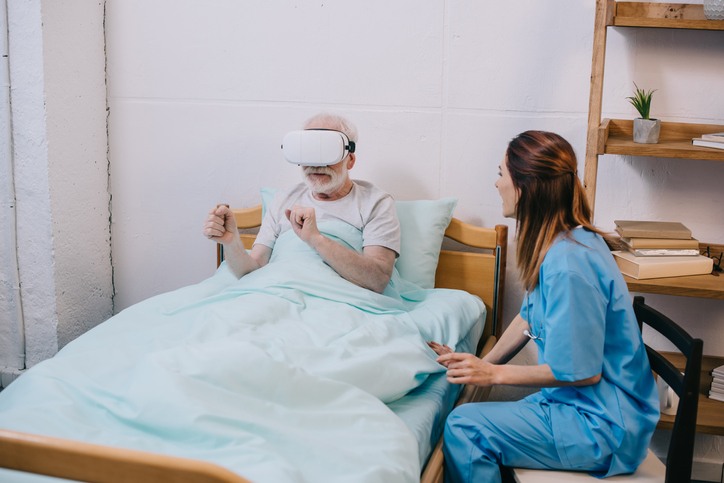Top UK’s Elderly Care Tech Startups
Category: Uncategorized
In February 2018, the WHO reported that for the first time ever, the majority of those born could expect to live beyond 60. Between 2015 and 2050, the proportion of the global population aged 65 or above will nearly double from 12% to 22%. In Europe, this figure is already 25%. In the UK, that figure is slightly lower, at 18%. However, that proportion has grown from 15.9% in 2007, and is projected to increase into the future.
An ageing population has a series of potential ramifications for the economy and politics. As fertility rates have dropped in the developed world, maintaining a healthy “dependency ratio” (the ratio of tax-paying workers to tax-consuming retirees) has been a key driver behind many immigration policies. Some analysts believe this factor influenced Germany’s decision to adopt a tolerant refugee programme back in 2015, which arguably had a hand in a series of political disruptions across the continent, including Brexit.
As this demographic increases, a series of entrepreneurs are looking to recent technological advances to help improve quality of life amongst the elderly. Their startups have recently been grouped into a new HealthTech subsector known as “AgeTech”, or sometimes as “Ageing2.0”. This is a recent commercial phenomena; as such, we thought it would be timely to analyse this subsector, mapping the new technologies, and the people behind them.

To illustrate just how young this sector is, the first equity finance funding rounds only took place in 2013, with five very young companies raising £700k between them. Since then, around 50 AgeTech startups have fulfilled one of Beauhurst’s fast-growth business triggers. 75% of these companies are still in an early, pre-revenue stage. 17% have died, though four (around 8%) have either demonstrated sales potential, or been acquired by other, more established businesses.
Of the latter, Canary Care was one of the UK’s first AgeTech startups to raise equity finance back in 2013. Founded by the ex Head of Corporate Finance at Bupa, Canary Care developed what has become a common product in the AgeTech sector: a remote home sensing system, which relatives can use to monitor their elderly family members. Backed repeatedly by the VC arm of Mercia Technologies and crowdfunding platform SyndicateRoom, Canary Care was acquired by Lifecycle Software just five years after incorporating, for an undisclosed sum.
Other AgeTech startups have gone on to raise more sizeable sums of venture funding. Chief among these is Cera, whose $17m funding round in 2018 made them the best funded AgeTech startup thus far.
Top UK AgeTech startups by equity finance raised
With this funding, Cera has planned to launch an acquisition spree of regional care providers. Cera’s particular USP is a centralised technology platform for dispensing care services, such as at-home carers. With this they can automate many of the associated processes, such as matching patients with carers with the skillset necessary to manage their conditions. This automation can cut logistical and administrative costs. Their position is that most care providers lack this technology infrastructure, even if they employ very capable staff. By acquiring suitable traditional care providers, Cera hopes to introduce efficiencies across the sector. Thus far it has acquired two regional care providers.
Cera’s openness to technology is illustrated by their recent partnership with IBM to pilot the use of autonomous vehicle technology in home care. By scanning the home environment, “lidar” sensors could learn a particular person’s daily routine, alerting carers when this routine is disrupted (a similar product to that offered by Care Canary).

Care Sourcer, Elder, and SuperCarers all provide a web-based platform through which users can book carers. For example, SuperCarers has set out to cut out the two usual suppliers of care – private care firms, or the local government. By putting care consumers in direct touch with the actual carers, expensive agency fees and slow public bureaucracy can be avoided. If applied across the economy, this would theoretically free up a lot of resources in care provision.
That so many of the UK’s top AgeTech startups have sprung up to provide a similar service to SuperCarers suggests a level of saturation in this particular part of the market. Others, however, are offering more advanced products. Similar to Care Canary, Birdie and Alcove have developed a series of home-based systems designed to improve the independence of elderly care patients.
Birdie provides connected sensors which alert carers to events such as falls, or “wandering”. Alcove’s hardware provide a similar service, alongside simplified versions of everyday technology suitable for the generally less tech-savvy elderly, or those suffering significant mental decline, such as dementia patients.

RISE.IQ is also attempting to improve dementia care, by developing software that coaches carers on the best way to help dementia patients. Dementia seems a particularly focus point in the AgeTech sector. RemindMeCare has developed a mobile app designed to augment “reminiscence therapy”. Using digital content, this app helps to trigger past memories for dementia patients, a popular therapy method. Reminiscience, in a similar vein, develops virtual reality technology designed specifically for care home usage. Residents can use this technology to engage in tailored virtual experiences based on their memories.
Other startups, such as KareInn, have focussed more explicitly on improving process efficiency on the part of care providers. KareInn’s task management software is designed to simplify the administrative tasks of carers; after entering care plans for specific patients, carers are provided with appropriate reminders, and an online record of administered treatments.
Whilst still a young sector, with most companies still in a seed, pre-commercial stage, there is clearly a diverse set of solutions being offered, and funding quadrupled from £10m in 2017 to £40m in 2018.
Cera is currently the UK’s top AgeTech startup, but it will be interesting to see which other businesses are able to capitalise on new technology that can help the economy cope with an ageing population.
Discover the UK's most innovative companies.
Get access to unrivalled data on all the businesses you need to know about, so you can approach the right leads, at the right time.
Book a 40 minute demo to see all the key features of the Beauhurst platform, plus the depth and breadth of data available.
An associate will work with you to build a sophisticated search, returning a dynamic list of organisations matching your ideal client.




